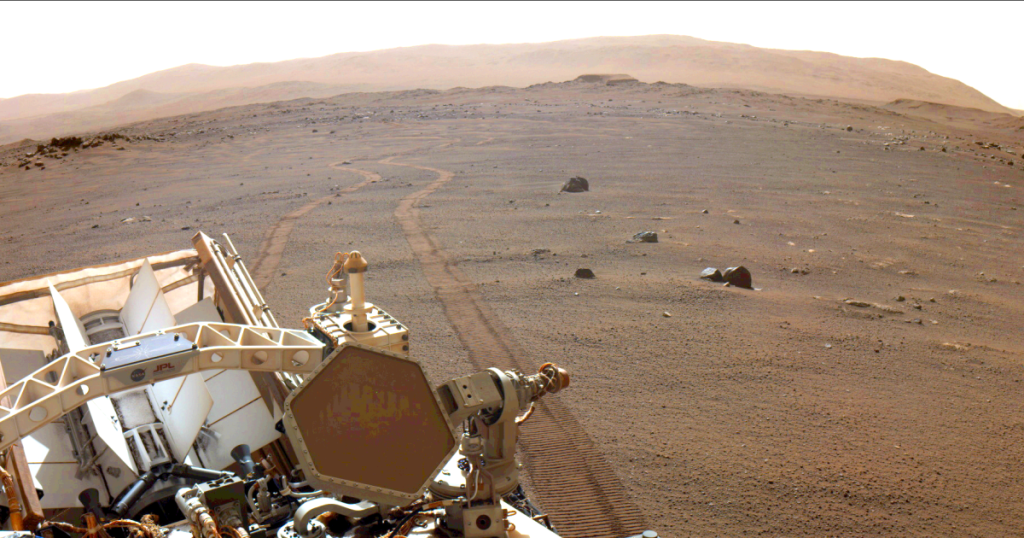Using the Perseverance spacecraft’s instruments, scientists have validated the speed of sound on Mars. They discovered that the sound intensity on Mars is unusually different. In the Martian climate, the sound would take a little longer to reach your eardrum. Mars has a lesser speed of sound, traveling at roughly 540 miles per hour, whereas the velocity of sound on Earth is 760 miles per hour. Mars’ environment is approximately 100 times less thick than that of Earth. The thicker air alters the path of acoustic pressure from the origin to the sensor, culminating in a dimmer pulse.
The atmosphere of Mars is composed of 96 percent CO2. Because this eliminates a lot of relatively high noises, only lower-pitched sounds go far. The sound varies greatly depending on the surroundings. Temperatures, altitude, and material qualities all have an impact on the nature of sound. Thus, sound can travel in air at 343 m/s in our atmosphere at temperatures below 20 degrees Celsius. It has an average speed of 1,481 m/s underwater since lesser components slow down there. Its velocity in iron exceeds 5,000 m/s. Get this: the speed of sound in a diamond may reach 12,000 m/s. Several of the keys should be discovered in the depth of the medium: sound flows through the density quickly. However, Mars’ environment would become far shallower than Earth’s.

Mars’ atmosphere isn’t safe for people to communicate clearly in, therefore future Mars inhabitants are improbable to speak outside of tightly regulated dwellings. Nevertheless, it’s a fascinating notion, and Nasa even offers an online program where you can explore how your voice might sound on Mars. According to the latest research, speaking or performing music on Mars would give a “distinct music experience.”
“If you were standing on Mars, you’d hear a softer, more muted variation of what you’d hear on Earth, and you’d have to wait somewhat more to hear it,” NASA adds. The atmosphere on Mars is completely opposite. The most substantial change to audio would be elevated noises, which would be louder than most voices. The duration between the laser striking and the sound entering the Super Cam microphone was measured by the researchers. They might correlate this to Earth’s findings. The findings supported Nasa’s prior projections concerning the speed of sound on Mars’ surface. Because heat increases the speed of sound, the Nasa researchers were able to utilize the study to build in certain gaps concerning temperature changes. They also noticed certain temperature changes that need to be investigated further.



